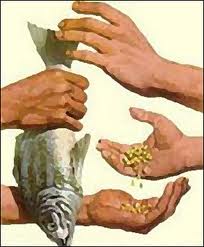Spice-One of the Reasons for the Colonization of Southeast Asia
The “Spice Boys”
Almost all countries in Southeast Asia were colonized by western nations. What is it about this region that attracted the white men? What were they looking for?
History tells us that what they really, really, wanted was trade. More specifically, the spice trade. The spice trade even helped launch the Age of Exploration. Even during ancient and medieval times, spice was already worth its weight in gold. Spice was used for magical rites and purification ceremonies, embalming, cosmetics, perfumes, medicinal benefits, and of course for its more conventional uses: for cooking, food flavoring, and food preservation.
During the 15th and 16th century, Europeans were looking for the shortest route to the fabulous East, and for the Spice Islands (the Moluccas, or Maluku, in Indonesia). They theorized that by sailing west, they would eventually reach the Spice Islands. Ferdinand Magellan, a Portuguese explorer sponsored by the Spanish King, in his search for the Spice Islands stumbled upon an archipelago which was later named “Philippines.” Another Portuguese looking for the Spice Islands, Vasco da Gama, found a route via Cape Horn on the southern tip of Africa and reached India. Marco Polo’s travels to China were also attempts to open a spice trade route to Asia.
Later on, the whole Malay Archipelago (Malaysia, Singapore, and Indonesia) became one of the major centers for the rich spice trade. The Portuguese established outposts throughout the region, and established footholds for future colonization. Eventually, other western nations joined in. The whole region was opened for colonization.
The quest for spice was one of the main reasons for westerners to roam the globe. In the 18th century, the Moluccas ceased to be the main source of spice. Other European nations had found a way to cultivate the spices in their other colonies, most notably the Netherland’s West Indies.
By then, colonies throughout Southeast Asia, where the original Spice Islands are located, were established, and the western nations had found other reasons for colonization.
But that is another story.




Comments
Post a Comment
So, what do you think? Post it here: